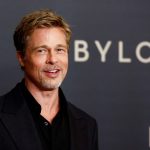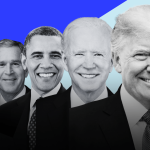Judging by the stans that cluster in his replies, Elon Musk’s $44 billion buyout of Twitter was a scene out of a Marvel movie. Never mind Iron Man; they posted pictures of Musk as Captain America. After this hero fired four people, they also gleefully posted pictures of Musk as Thanos – perhaps forgetting that Thanos caused untold damage and was ultimately defeated once the planet’s most powerful defenders banded together against him.
“The bird is freed,” Musk tweeted. It was Orwellian language from someone who just took a public company and stuffed it into a private cage. The bird is not free; the bird is shackled to a consortium that includes Musk, banks, fellow billionaires, and various Saudi investors. Whatever happens to the bird next, whether it lives or dies, is less in Musk’s court than anyone thinks.
Still, the bird stuff sounded superheroic to the stans, many of whom were agitating for the “freedom” of banned accounts, like a certain ex-president who used Twitter to help incite a coup. Musk had said in May that he’d restore Trump’s account.
Musk, as we’re all starting to learn by now, says a lot of things to a lot of people.
Soon enough, Musk’s tweets started to sound less Avengers, more The Hangover. The supposed troll savior announced a “content moderation council with widely diverse viewpoints” would be formed prior to any “major content decisions or account reinstatements”: So much for anyone expecting a Trump reinstatement before the midterms. He made vague “I’ll be digging into it” promises on that perennially vague complaint, “shadowbanning,” to a Trump-supporting account named Catturd, as if he were a bored customer service rep and not the billionaire owner.
Musk is all carnival barker, no bite
And as for all those supposed firings? The 75 percent of the company that Musk had talked tough about removing? Beyond the immediate removal of CEO Parag Agrawal and three other executives, no other oustings have been announced. Bloomberg and CNBC were taken in by a couple of pranksters claiming to be just-fired data engineers outside Twitter HQ, though. (Musk, a teenage boy at heart, later saluted the prankster who gave his name as “Ligma.”)
Guess we’ll wait to see if Mr. “Let the Good Times Roll” actually aims to make it rain pink slips at the holidays. But at least for now, it seems that Musk – a seasoned showman since his early Twitter days – is all carnival barker, no bite.
Because here’s the thing: No matter what happens now, Musk is going to run headlong into reality, regulators, and simple business sense. He overpaid for Twitter, couldn’t find a way to back out of the deal, and now he must make it make money or risk the wrath of his fellow investors. Social media experts cannot foretell what will happen next, but they do seem to believe Musk has bitten off a more complex political problem than he can chew.
Tweet may have been deleted
(opens in a new tab)
Running a global content company with no prior experience is difficult — especially when investors are breathing down your neck and sophisticated government influence operations are everywhere. It means not spooking advertisers (who Musk preemptively courted by promising “Twitter obviously cannot become a free-for-all hellscape.” Ya think?) It means not annoying the majority of users who just want the Nazis to be banned and stay banned, some of whom are threatening to make the platform as worthless as Tumblr after Yahoo bought it. And it means not courting a revolt by the employees who actually run the shiny machinery you just bought.
Oh yeah, and it means playing nice with the European Union. With 450 million people, the EU has more potential Twitter users (and Tesla buyers!) than the United States, and it has much stricter laws safeguarding internet users’ rights.
Those “accept cookies” pop-ups you keep getting, which (in theory) cut down on the number of companies tracking you? Largely the doing of the EU regulation known as GDPR. Now here comes the Digital Services Act, which just received final approval from the EU Parliament and Council. The DSA sets standards for content moderation, aims to fight disinformation, and was praised by Facebook whistleblower Frances Haugen as “the gold standard” for keeping social media giants in check with minimal regulation.
European Commissioner Thierry Breton reminded Musk of his DSA obligations immediately after the Twitter sale went through – “the bird will fly by our rules” – and Musk had no response. Not even his classic bomb-throwing “LOL” emoji. How could he? He’s in a video with Breton announcing their joint support for the DSA back in May.
And what’s Musk going to do if he gets on the wrong side of European law? Pull every Twitter office, every Twitter server, out of an entire continent that also buys his overpriced electric cars? Seasoned Euro watchers are already preparing the popcorn.
Tweet may have been deleted
(opens in a new tab)
To recap, then: a billionaire with a habit of founding (or pretending to found) new companies got addicted to Twitter. He became so intoxicated by the validation, he bought the platform at huge cost. He had a simplistic libertarian view of free speech and a blind spot for hate speech (and the laws against it). He told friends he was going to fire thousands of workers; he told bankers he was going to hire thousands of workers to create more value.
He walked into the offices, made a dad joke, hung around chatting, fired four big names to appease his horde. Then as reality set in and he was reminded that laws and regulations exist, he decided to punt the content moderation question to a committee – just as Zuckerberg found himself doing with the Oversight Board, which itself punted on the big Trump ban question.
Turns out running a social media company isn’t as easy as it looked before the takeover. Musk may soon get bored with his complicated new toy, wary of turning off too many customers and advertisers, and decide to delegate most of the big decisions to a team that keeps Twitter chugging along pretty much as is.
In which case, there may not be enough popcorn in the world for the disappointment of those stans. Sooner or later, they may realize they weren’t caping for a Marvel superhero, but a bored billionaire who never really cared for them in the first place.







